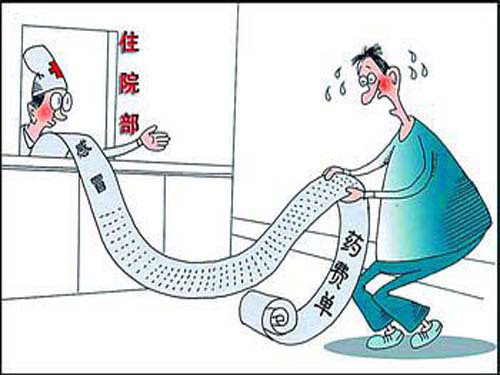
There is nothing wrong with the starting point for centralized bidding and procurement of drugs, but more than 10 years of centralized bidding and procurement of drugs have been carried out. This has not given patients the opportunity to reduce the cost of drugs and burn a fire. Whether you admit it or not, this type of procurement model that is incompatible with the market economy has come to an end or it has entered a dead end.
Centralized tendering and purchasing cannot sort out the legal dividing line for all parties involved in the drug. The accident has left huge profit margins for drug dealers, planting seeds for drug rebates and all sorts of bad consequences. So, if there is no centralized bidding and procurement, will drug prices be high? This is not exactly the case. The key lies in the operation and supervision mechanism.
In some county-level hospitals in Zhuzhou, Hunan, the overall price difference for drugs is 40% or more, and only half of the government-guided price. In provincial-level hospitals, the combined price difference of drugs is only 15%. Some county-level hospitals in Zhuzhou have obtained a policy that, on the basis of government-led tendering, hospitals can negotiate with dealers for the lowest purchase price. After drugs enter the hospital, they are not blindly implementing the method of selling at a reasonable price. Sales within the government's limit price have greatly reduced the drug rebate space.
Why is there such a big contrast? It is not that there are differences in the quality specifications of medicines, but there is a problem with centralized bidding and procurement.
First of all, there is a problem with the evaluation of drugs. It is impossible for the experts of the review committee to make accurate judgments on the cost-effectiveness of drugs within a few days. There is a lot of room for manipulating the bids; secondly, the ex-factory price of drugs is from the place of drug production. The price department has approved that drug distributors and manufacturers are interested in alliances, usually local distributors are responsible for the entry of drugs into big catalogues, and expensive public relations costs are the secondary cause of excessively high prices; finally, government sales are controlled by drug sales prices. , that is, the implementation of the sale price, the lack of competition for medical institutions in the pharmaceutical sales, reducing the purchase price of medicines can not stimulate and mobilize the hospital's enthusiasm.
Stop the implementation of centralized bidding for drugs in the form of government and allow the hospitals to purchase on their own in accordance with the market's methods. The relevant government departments monitor two indicators: quality and price. The quality should be handed over to the drug control department, and the price should be in the form of public comparison (the pharmacy's purchase price should also be included in the monitoring and reporting range). The price department will reduce the government's guidance price year by year according to the average price of a drug in the year. The cancellation of price-adjusted sales guidance by the government may be more conducive to competition among hospitals in drug sales, so as to facilitate the mobilization of hospital enthusiasm or temporarily ease the pressure on government finances.
Transfer Pipettes,Plastic Transfer Pipette,Polybag Transfer Pipette,Plastic Droppers Transfer Pipette
Yancheng Rongtai Labware Co.,Ltd , https://www.shtestlab.com